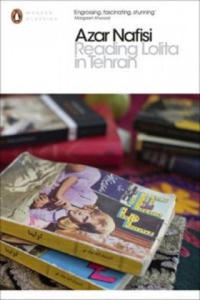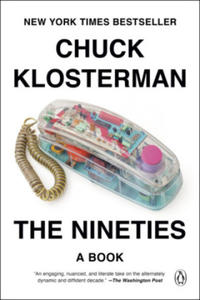libristo every other thursday 4574941
- znaleziono 4 produkty w 3 sklepach
Spalona Żywcem Wyd. Kieszonkowe - Souad
Książki & Multimedia > Książki
Opis - Pierwsze na świecie świadectwo ofiary zbrodni honorowej. Miała siedemnaście lat i zakochała się: zhańbiła rodzinę. Więc rodzina wydała na nią wyrok śmierci... Pokochała go pierwszą miłością. Myślała, że się z nią ożeni. Ale ukochany zniknął, a ona odkryła, że jest w ciąży. A w jej świecie to najcięższa zbrodnia... W zapomnianej przez Boga wiosce w Cisjordanii kobiety są warte mniej niż zwierzęta domowe. Tu mężczyzna jest panem życia i śmierci żony, córki, siostry. Brat może bezkarnie zabić siostrę, matka - córkę, kolejną bezużyteczną dziewczynkę, jaka się urodzi. Tu kobiecie odbiera się godność, a nawet życie zgodnie z odwiecznym obyczajem i uświęconą tradycją. A śmierć jest karą dla dziewczyny, która zhańbi rodzinę. Tak jak Souad. Wyrok wydaje jej ojciec. Szwagier dokonuje egzekucji. Oblewa Souad benzyną i podpala... SOUAD przeżyła - cudem, ale rodzina usiłowała zabić ją nawet w szpitalu. Na zawsze jednak pozostanie straszliwie okaleczona - na ciele i duszy. I wciąż musi się ukrywać; dopóki żyje, jej rodzinę okrywa hańba. Spalona żywcem, opublikowana pod pseudonimem szokująca opowieść o piekle, jakim było jej dzieciństwo i młodość, stała się międzynarodowym bestsellerem. Wydana w 37 w krajach książka przerywa tabu milczenia wobec istniejącej nadal w krajach muzułmańskich barbarzyńskiej tradycji. Nieludzkiego obyczaju, prawa mężczyzn, na mocy którego co najmniej pięć tysięcy kobiet pada co roku ofiarą zbrodni honorowej. Nazwa - Spalona Żywcem Wyd. Kieszonkowe Autor - Souad Oprawa - Miękka Wydawca - Amber Kod ISBN - 9788324159406 Kod EAN - 9788324159406 Wydanie - 1 Rok wydania - 2016 Tłumacz - 31182,maria rostworowska; Format - 110 x 175 x 14 Ilość stron - 224 Podatek VAT - 5% Premiera - 2016-06-23
Sklep: InBook.pl
Letter from America Penguin
Powieści i opowiadania
When Alistair Cooke retired in March 2004 and then died a few weeks later, he was acclaimed by many as one of the greatest broadcasters of all time. His Letters from America, which began in 1946 and continued uninterrupted every week until early 2004, kept the world in touch with what was happening in Cooke's wry, liberal and humane style. This selection, made largely by Cooke himself and supplemented by his literary executor, gives us the very best of these legendary broadcasts. Over half have never appeared in print before. It is a remarkable portrait of a continent - and a man. Fred Astaire 26 June 1987 Movie stars don't make it. Nor statesmen. Not Prime Ministers, or dictators unless they die in office. Not even a world-famous rock star, unless he's assassinated. But last Monday, none of the three national television networks hesitated about the story that would lead the evening news. On millions of little screens in this country and I don't doubt in many other countries around the world, the first shots were of an imp, a graceful wraith, a firefly in impeccable white tie and tails. And for much longer than the lead story usually runs, for a full five minutes on NBC, we were given a loving retrospective of the dead man, ending with the firm declaration by Nureyev that 'He was not just the best ballroom dancer, or tap dancer, he was simply the greatest, most imaginative, dancer of our time.' And the newsmen were right to remind us of the immortal comment of the Hollywood mogul, who, with the no-nonsense directness of an expert, reported on Fred Astaire's first film test: 'Has enormous ears, can't act, can't sing, dances a little.' That Hollywood mogul, long gone, spent his life ducking round corners, to avoid being identified as the oaf who looked in the sky and never saw the brightest star. However, that expert opinion was, as the lawyers say, controlling at the time and in Astaire's first movies, there was no thought of allowing him to act or sing. But not for long. And thanks to the invention of television, and the need to fill vast stretches of the afternoon and night with old movies, it has been possible for my daughter, for instance, to claim Fred Astaire as her favourite film star from the evidence of all the movies he made fifteen, ten, five, three years before she was born. When I got the news on Monday evening here, and realized with immediate professional satisfaction that the BBC had smartly on hand a musical obituary tribute to him I put together eight years ago, I couldn't help recalling the casual, comic way this and similar radio obituaries came about. I was in London at the end of 1979, and Richard Rodgers - one of the two or three greatest of American songwriters - had just died, I believe on New Year's Eve or the night before. Britons, by then, were getting accustomed, without pain, to making what used to be a two-day Christmas holiday into a ten-day much-needed rest. For all laborious research purposes, the BBC was shut up. And there was no retrospective programme on the life and music of Richard Rodgers in the BBC's archives. Of course, in a gramophone library that looks like an annex to the Pentagon, there were hundreds, perhaps thousands, of recordings of his songs. The SOS went out to a writer, a producer, and - I presume - a man who had the key to the gramophone library. The silent place was unlocked, and the three of them laboured through the day to put together an hour's tribute to Richard Rodgers. It was done. It was competent enough, but rushed to an impossible deadline. This hasty improvisation happened just when my own music producer and I, who had enjoyed working together for six years or so on American popular music, were wondering what we could offer next. We'd done a sketch history of jazz, through individuals. We'd gone through all the popular music of the 1920s, 1930s and 1940s, and were stumped for a new series, at which point I asked if we mightn't go and talk to the head of the channel, network or whatever. We went in, and the genial boss asked me what we had in mind. 'A morgue,' I said. A what? 'Where', I asked, 'is your morgue?' He was not familiar with the word, a newspaper term. 'Well,' I said, 'all newspapers have them.' 'How d'you mean?' 'If, I explained, 'Mrs Thatcher died tonight and you woke up and read a two-sentence obituary, you'd be rightly outraged. But if you saw a two-page obituary, you'd take it for granted. When d'you suppose it was written?' 'That's right,' he said thoughtfully. What I was proposing was a morgue of the Americans eminent in popular music and jazz, so they'd not get caught short again. A splendid idea, the man said; pick your stars. We made a list and were commissioned to return to America and finish all of them. Naturally, we looked at a calendar, and birthdates of Hoagy Carmichael, Earl Hines, Harold Arlen, Ethel Merman, Stephane Grappelli, Ella Fitzgerald. But then, in a spasm of panic, we thought of two giants - if the word can be used about two comparative midgets: Irving Berlin and Fred Astaire. Berlin was then 91. And Fred Astaire was just crowding 80. The boss man, to whom the idea of a morgue had been, only a few minutes before, quaint if not morbid, wondered what we were waiting for. Better get busy, at once, on Berlin and then on Astaire. I remember doing the Astaire obit, then and there, while I was still in London. Meanwhile, we'd simply pray every night that the Lord would keep Irving Berlin breathing till I could get home and get busy. I remember being picked up in a car by a charming young girl to get to the BBC and record my Astaire narration - there wasn't a moment to lose. She asked me, in the car, what the script was that I was clutching. 'It's an obituary', I said, 'of Fred Astaire.' 'Fred Astaire,' she shrieked, 'dead?' and almost swerved into a bus. 'Of course, he's not dead,' I said, 'but he's going to be one day.' She, too, was new to the institution of a morgue. I recalled that when I was a correspondent for a British paper in the United States, and when for example. Dean Acheson was appointed Secretary of State, the first cable I had from my editor said, 'Welcome Acheson obituary soonest.' How ghoulish, she said. I imagine that to two generations at least, it's assumed that Fred Astaire, this slim, pop-eyed newcomer to Hollywood who couldn't act, couldn't sing, danced a little, only made a fool of the mogul through the movies he made, with Ginger Rogers, in the mid- and late 1930s. But long before then, from the mid-1920s on, he was already an incomparable star - as a dancer - to theatre audiences both in New York and in London. Perhaps more in London than anywhere, certainly in the 1920s, with the early Gershwin hits, Funny Face and Lady Be Good, and lastly, in 1933, in Cole Porter's Gay Divorce (which was the title of the theatre show; Hollywood would not then allow so shocking a title and called the movie version, The Gay Divorcee). Of all the thousands of words that have been written this week, and will be written, there is a passage I went back to on Tuesday night which, I think, as well as anything I know, sums up Astaire's overall appeal - the appeal that takes in but transcends one's admiration for his dancing and for his inimitably intimate singing style. This was written in November 1933, by a theatre critic who had so little feel for dancing that he marvelled why London should go on about 'Mr Astaire's doing well enough what the Tiller Girls at Blackpool do superbly'. The critic, the writer, was James Agate, the irascible, dogmatic, opinionated but brilliant journalist, and I believe the best critic of acting we have had this century. He is writing his review of Gay Divorce, after declaring yet again his contempt for musical comedy as an entertainment for idiots, deploring the play's plot and the acting and hoping 'Micawberishly, for something to turn up'. 'Presently,' he wrote, 'Mr Fred Astaire obliged, and there is really no more to be said.' Except
Sklep: Albertus.pl
Reading Lolita in Tehran Penguin Books
Książki / Literatura obcojęzyczna
Every Thursday morning in a living room in Iran, over tea and pastries, eight women meet in secret to discuss forbidden works of Western literature. As they lose themselves in the worlds of Lolita, The Great Gatsby and Pride and Prejudice, gradually they come to share their own stories, dreams and hopes with each other, and, for a few hours, taste freedom. Azar Nafisi's bestselling memoir is a moving, passionate testament to the transformative power of books, the magic of words and the search for beauty in life's darkest moments.
Sklep: Libristo.pl
Nineties Prentice Hall Press
Książki / Literatura obcojęzyczna
An instant New York Times bestseller!From the bestselling author of But What if We re Wrong, a wise and funny reckoning with the decade that gave us slacker/grunge irony about the sin of trying too hard, during the greatest shift in human consciousness of any decade in American history.It was long ago, but not as long as it seems: The Berlin Wall fell and the Twin Towers collapsed. In between, one presidential election was allegedly decided by Ross Perot while another was plausibly decided by Ralph Nader. In the beginning, almost every name and address was listed in a phone book, and everyone answered their landlines because you didn t know who it was. By the end, exposing someone s address was an act of emotional violence, and nobody picked up their new cell phone if they didn t know who it was. The 90s brought about a revolution in the human condition we re still groping to understand. Happily, Chuck Klosterman is more than up to the job. Beyond epiphenomena like "Cop Killer" and Titanic and Zima, there were wholesale shifts in how society was perceived: the rise of the internet, pre-9/11 politics, and the paradoxical belief that nothing was more humiliating than trying too hard. Pop culture accelerated without the aid of a machine that remembered everything, generating an odd comfort in never being certain about anything. On a 90 s Thursday night, more people watched any random episode of Seinfeld than the finale of Game of Thrones. But nobody thought that was important; if you missed it, you simply missed it. It was the last era that held to the idea of a true, hegemonic mainstream before it all began to fracture, whether you found a home in it or defined yourself against it. In The Nineties, Chuck Klosterman makes a home in all of it: the film, the music, the sports, the TV, the politics, the changes regarding race and class and sexuality, the yin/yang of Oprah and Alan Greenspan. In perhaps no other book ever written would a sentence like, The video for Smells Like Teen Spirit was not more consequential than the reunification of Germany make complete sense. Chuck Klosterman has written a multi-dimensional masterpiece, a work of synthesis so smart and delightful that future historians might well refer to this entire period as Klostermanian.
Sklep: Libristo.pl
Sklepy zlokalizowane w miastach: Warszawa, Kraków, Łódź, Wrocław, Poznań, Gdańsk, Szczecin, Bydgoszcz, Lublin, Katowice
Szukaj w sklepach lub całym serwisie
1. Sklepy z libristo pl every other thursday 4574941
2. Szukaj na wszystkich stronach serwisu
t1=0.014, t2=0, t3=0, t4=0, t=0.014




